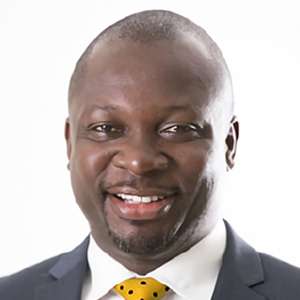The Chief Executive Officer of the Ghana Association of Banks (GAB), John Awuah, has urged pension fund managers in Ghana to adopt a more strategic and diversified investment approach.
Mr. Awuah advocated a shift away from the traditional dependence on government securities, which have recently underperformed due to the domestic debt exchange programme.
According to him, such a shift is crucial not only for enhancing pension fund returns but also for ensuring long-term sustainability and stability in Ghana’s financial sector.
The urgency of this call stems from the negative effects of Ghana’s domestic debt exchange, which significantly cut the value and returns of government securities. Since pension funds in Ghana are heavily exposed to these instruments, the shock has eroded returns, threatening the security of retirement incomes and the viability of pension schemes.
“Overreliance on government securities makes pension funds vulnerable to sovereign risk. The future of investment and pension fund management requires a fundamental shift in our approach to risk diversification and governance.”
John Awuah
Exploring Alternative Investment Tools
To reduce this vulnerability, Mr. Awuah encouraged fund managers to explore alternative investment tools. These may include infrastructure development, real estate, private equity, agriculture, and impact investing—sectors with the potential to deliver solid long-term returns and support national development.
He emphasized that embracing such alternatives would not only improve pension outcomes for workers but also contribute to Ghana’s broader economic growth.
“We must embrace alternative investments and ensure professional management of our pension funds. By doing so, you will not only ensure that pension funds are sustainable and provide value for retirement, but also foster an environment of economic growth.”
John Awuah
Mr. Awuah underscored the importance of risk diversification, advocating for a balanced portfolio approach in managing pension funds. A diversified investment strategy, he noted, would mitigate systemic risks and enable pension funds to withstand economic shocks such as those witnessed during the debt restructuring period.
“Creating a balanced portfolio diversifies risks and increases the chances of better returns,” he stressed. “It’s about spreading risk and positioning pension funds for long-term success.”
Beyond diversification, Mr. Awuah called attention to the governance structures that underpin pension fund management. He warned that without sound governance, even the most well-designed investment strategies could fail. Poor investment decisions, often resulting from weak oversight, have led to low returns for Ghana’s pension schemes, particularly within the Social Security and National Insurance Trust (SSNIT).
“The role of fund managers must go beyond compliance. It must be visionary and strategic. Good governance is the cornerstone of any successful pension management system.”
John Awuah
Aligning Pension Investments with National Development
Mr. Awuah’s message also resonated with broader conversations across the continent about aligning pension investments with national development priorities. Pension funds, when properly managed, can become a reliable source of capital for critical sectors, including infrastructure and agriculture, which in turn stimulates job creation and economic expansion.
He argued that Ghana must follow the example of other countries that have successfully leveraged pension funds to build resilient economies. “Our investments must not only secure retirement incomes but also drive the nation’s development goals,” he concluded.
Mr. Awuah’s remarks serve as a wake-up call for policymakers, pension trustees, and fund managers to rethink their strategies and adopt a more forward-looking approach.
With the financial sector still recovering from the shocks of debt restructuring, the need to diversify and professionally manage pension funds has never been more urgent. If embraced, these reforms could pave the way for a more robust financial ecosystem—one that secures the future of retirees while powering Ghana’s economic transformation.
READ ALSO: Fitch Projects 4.2% Growth for Ghana’s Economy Backed by Gold



















